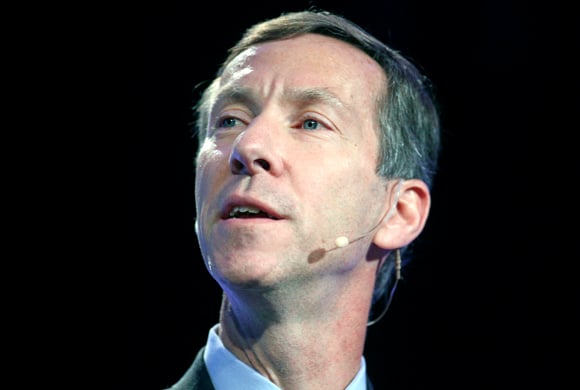Actively managed mutual funds in the U.S. have seen $76-billion worth of assets leave for greener pastures in the first five months of the year, according to the Investment Company Institute — except for one firm's offerings.
The standout performer in asset-gathering among active managers may come as a surprise: Vanguard Group Inc.
The firm's founder, Jack Bogle, has been perhaps the biggest champion of a passive approach to portfolio construction, or simply tracking a market index rather than seeking to beat it.
While such funds remain the firm's bread-and-butter, assets under active management at Vanguard now total around $1 trillion. As a result, Co-Head of Investment Grade Portfolio Management Gregory Nassour runs more money in the fixed-income space than former or current bond gods like Bill Gross or Jeffrey Gundlach.
Vanguard's ability to bring $28 billion into its actively managed mutual funds through the first half of this year — at a time when many of its competitors are seeing sizeable outflows — is the equivalent of swimming upstream, said Bloomberg Intelligence Analyst Eric Balchunas. These results fly in the face of two established industry trends for flows: money moving from active to passive management and from mutual funds to exchange-traded funds (ETFs).
The key to Vanguard's salmon-like abilities to collect assets are its fees. The company's actively managed mutual funds carry an average charge of 0.27% compared to 0.79% for peers.
(Related read: Vanguard CEO to advisers: Embrace robo-advice or fall behind)
"The whole story of the big sea change underway in money management isn't necessarily from mutual funds to exchange-traded funds or active to passive or human to robo-advisor — it's really about high-cost to low-cost," said Mr. Balchunas.
Vanguard, he says, is giving other actively managed mutual funds a blueprint of how to compete amid an ongoing shift towards lower-cost passively managed funds or ETFs.
"Vanguard's success shows that low costs can outweigh the trend toward passive investing," Mr. Balchunas asserted. "Ironically, Vanguard could be active's best hope right now."
Looking at these flow numbers in 2016, mutual funds ought to feel pressure to lower fees to be a magnet for assets. Not coincidentally, this would give these funds better odds of outperforming the broader market, all else being equal.
"Funds getting the inflows are the ones that are competitive with expense ratios," said Todd Rosenbluth, director of mutual fund and ETF research at S&P Global Market Intelligence, who noted that across the industry, the average expense ratio has been trickling downwards. "But fees for actively managed mutual funds are still considerably higher than the index-based world."
But Mr. Rosenbluth pointed out that most companies offering actively-traded mutual funds have to please a constituency that Vanguard doesn't have to consider: their shareholders.
"Most firms that offer mutual funds are publicly traded, and publicly-traded companies have shareholders who want to see greater profitability," he said. "It's a challenge for a firm to balance getting money in at a lower fee or retaining its existing business for the same fee and keeping profitability higher."
Any influence Vanguard has on asset-gathering and management might not be confined to mutual funds.
The firm has filed to launch active ETFs in the U.S., and is likely to compete on price and have the same sort of influence on managers in this segment of the market, according to Mr. Balchunas.
"Asset management companies believe investors are willing to pay a premium for actively-managed investments," added Mr. Rosenbluth. "We're finding out whether or not that's true because investors are going to vote with their wallets."







